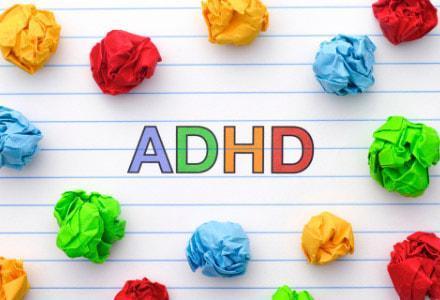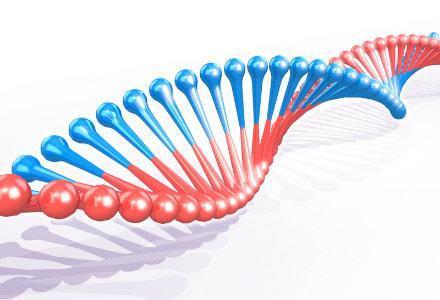What Is ADHD?
Attention Deficit Hyperactivity Disorder (ADHD) is a neuro-developmental disorder which impacts a person’s ability to maintain attention and engages in higher rates of hyperactivity or impulsivity. This can interfere with the person’s ability to function, learn and develop.

- What Is ADHD?
- What Are the Symptoms of ADHD?
- Who Can Diagnose ADHD
- What Are the Causes of ADHD
- Is ADHD Covered By the NDIS?
- Is it Common to Have ADHD With Other Disorders?
- What Age Does ADHD Appear?
- Does ADHD Present Differently in Girls and Boys?
- Why Is ADHD Like a Super Power?
- Does ADHD Affect Sleep?
- How Does ADHD Affect Learning?
- Are ADHD and Autism Related?
- Are ADHD and Developmental Delay Related?
- Can ADHD Be Cured?
- What Are the Treatments for ADHD?
- Will My Child Require Medication for ADHD?
What Are the Symptoms of ADHD?
There are many behaviours that are associated with ADHD. Some of the more common ones include:
- Difficulty sitting still and constantly on the move e.g., fidgety, often leaves sit or runs about in situations where it is not appropriate
- Trouble focusing on and completing tasks
- Forgetful e.g., losing track of what they are doing
- Trouble listening to others during conversations or when being spoken to
- May talk excessively, speak out or answer questions before the question has been completed
- Trouble organising themselves, tasks or activities
- Avoidant of tasks that require mental effort over a period of time e.g., homework
As any neuro-developmental disorder, ADHD may present differently in different people.
To meet diagnostic criteria, according to the DSM-5 criteria for ADHD, children below the age of 16 must have six or more symptoms of both inattention and hyperactivity or impulsivity.
In order to meet the diagnostic criteria for ADHD, symptoms must be present for at least 6 months and to an extent to which the symptoms are disruptive and inappropriate to the individual’s developmental stage.
Additionally, the individual must have presented with the symptoms before the age of 12, the symptoms must appear in two or more settings (e.g., home and school) and the symptoms must impact the quality of their school, work and/or social functioning.
Who Can Diagnose ADHD?
If a parent has concerns that their child may have ADHD, they should seek a referral from their GP for a Psychologist or Psychiatrist, who can complete the diagnostic tests.
What Are the Causes of ADHD?
ADHD affects one in twenty five Australians [1], Despite its prevalence, it is still not known exactly what causes ADHD.

It is suggested that genetics may play a role and that it has neurological origins [2].
Furthermore, research suggests that a reduction in dopamine, a chemical in the brain that helps move signals from one nerve to another and impacts triggering emotional responses and movements, is a factor in ADHD.
The cause of ADHD continues to remain a highly researched area.
Is ADHD Covered By the NDIS?
In Australia, ADHD is recognised as a disability under the 1992 Disability Discrimination Act [3]. Despite this, not all individuals with ADHD are covered by the NDIS at this time.
To meet eligibility criteria for the NDIS, the individual must:
- Show that their capacity for social and economic participation is affected
- Be likely to require support throughout their lifetime
- Show that their capacity to undertake day-to-day activities is substantially reduced. [4]
- Have a permanent or likely to be permanent disability
Is it Common to Have ADHD With Other Disorders?
Comorbidity (a medical condition that is simultaneously present with another) is common – around 50% of people with ADHD also suffer from one or more other conditions that require treatment. [5]
Comorbid conditions may include ASD, Anxiety, Depression, Executive Function Difficulties and Bi-Polar Disorder to name a few.
What Age Does ADHD Appear?
Most commonly ADHD will present around 7 years of age, however this will differ across individuals, with symptoms becoming present much earlier or later in life.
The reason it is often difficult to diagnose a younger child, is that most Preschool-aged children display symptoms similar to ADHD such as hyperactivity, being impulsive and not showing attention.
By the time the child reaches the age of 7, it’s easier to see differences between a child with ADHD and their peers.
Does ADHD Present Differently in Girls and Boys?
Symptoms are similar, however several studies have shown that higher rated emotional symptoms in girls may be a differentiating factor.
The prevalence of emotional problems in girls may also result in the diagnosis of ADHD being overlooked, with more disruptive behaviours more likely to result in a referral for diagnosis.

In addition, emotional issues may be diagnosed as anxiety or depression in girls, which can result in a delayed ADHD diagnosis.
Parents may also be less likely to report girls with ADHD symptoms if they display less stereotypical ADHD behaviours, as well having fewer difficulties. [6]
Why Is ADHD Like a Super Power?
Although ADHD can negatively impact an individual’s daily functioning, there are reported to be many positives present in individuals with ADHD, and if individuals receive the right support, at times, the positives can outweigh the negatives.

Some positive traits found in individuals with ADHD include:
- They’re often curious and enthusiastic
- Ability to hyper focus on interests
- Adventurous or curious tendencies
- Spontaneous engagement in activities
- More effective ability to brainstorm and problem solve
- Increased creativity and imagination
Does ADHD Affect Sleep?
It is common for individuals with ADHD to present difficulties with their sleep, such as their ability to fall asleep and stay asleep. Individuals with ADHD are at higher risk of developing sleep disorders. [7]
A study which looked at parental rating of sleep found that children with ADHD tended to sleep longer and that many of the sleep problems may be due to the more challenging behaviours during the bedtime routine. [8]
How Does ADHD Affect Learning?
As individuals with ADHD have trouble focusing and paying attention, some learning environments may be challenging for those individuals to learn in.
Typical learning environments require children to sit and pay attention to tasks, at times for longer periods of time.

If an individual is not supported in their learning environment, this can result in an increase of challenging behaviours, particularly those around task avoidance.
Strategies can be implemented in the classroom and home to ensure an individual with ADHD is supported.
Are ADHD and Autism Related?
It is common for children with Autism Spectrum Disorder (ASD) to later receive an ADHD diagnosis.
At times it can be difficult to distinguish one from the other, however, despite some similarities, there are still distinct differences between the two.
According to a study by Antshel, Zhang-James & Faraone (2014) ‘ ASD and ADHD are both associated with impaired social interaction’ with social interaction impairments more significant in those with ASD.
In addition, ‘children with ASD have more planning and cognitive flexibility difficulties and children with ADHD have more inhibition difficulties’. [9]
Some examples of symptoms an individual with ASD will present with:
- Increase in restricted and repetitive behaviours
- Avoidance of eye contact or referencing another person’s face
- Deficits within their social communication skills
- Delayed developmental milestones
For more information about ASD and how this presents, take a look at our Helping Children With Autism Spectrum Disorder article.
Are ADHD and Developmental Delay Related?
Studies have shown that there is a correlation between children with Developmental Delay (DD) and ADHD.
Baker, Neece, Fenning, Crnic & Blacher’s (2010) research [10] found that ADHD was more prevalent in the group of children who had developmental delay. They found children started displaying behaviour problems at 3 years old, leading to ADHD diagnosis at age 5.
Can ADHD Be Cured?
Whilst ADHD cannot be cured, with the appropriate support in place, individuals with ADHD can live a positive and full life and the symptoms of ADHD and how they negatively impact the individuals life can be greatly reduced.

What Are the Treatments for ADHD?
Research indicates that a combination of medication and behaviour therapy (such as ABA) produces the best outcomes for children with ADHD.
ABA therapy is a non-drug treatment, and whilst it can be complementary to a medical plan, alone, ABA therapy can also ensure the appropriate behavioural supports are in place for the child in the classroom and at home, if a non-drug treatment is of preference to you. [11]
Will My Child Require Medication for ADHD?
Medication has been proved to be effective in helping increase attention for individuals with ADHD.
For more information about how medication can support a child with ADHD, consult with your GP and/or psychiatrist, who can provide you with the most up to date information on the available medications for your child and how they can help.
Sources
- About ADHD, ADHD Australia
- What causes ADHD, Healthline
- ADHD Coalition of Victoria Inc – Disability Care and Support – Public inquiry
- ADHD and NDIS eligibility: Your questions answered
- Co-morbid Conditions or Conditions Associated with ADHD
- Do different factors influence whether girls versus boys meet ADHD diagnostic criteria? Sex differences among children with high ADHD symptoms
- ADHD and Sleep Problems: How Are They Related?
- Actigraphy and Parental Ratings of Sleep in Children with Attention-Deficit/Hyperactivity Disorder (ADHD)
- The comorbidity of ADHD and autism spectrum disorder
- Mental Disorders in Five-Year-Old Children With or Without Developmental Delay: Focus on ADHD
- Applied Behavioral Analysis (ABA) As a Treatment for ADHD
